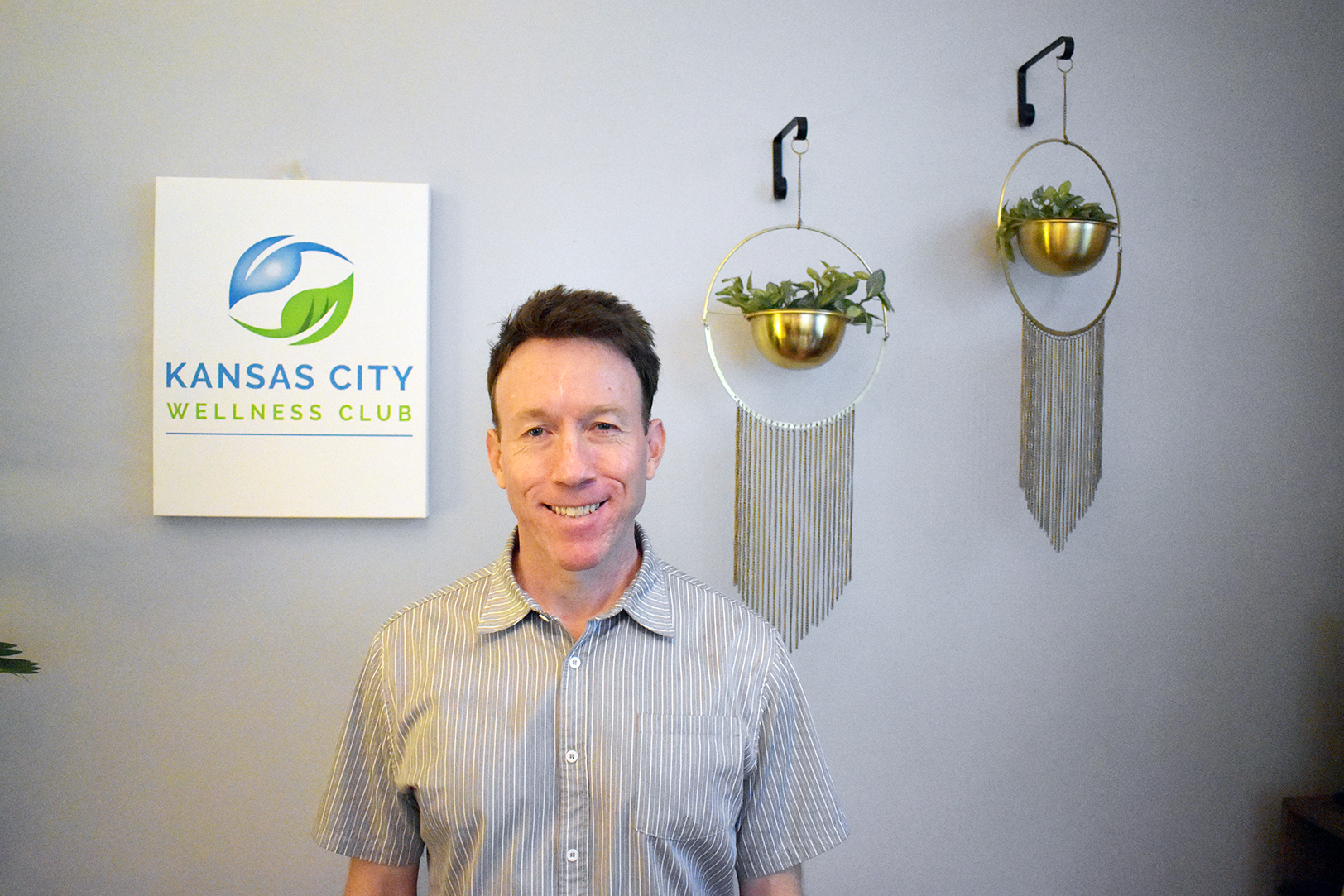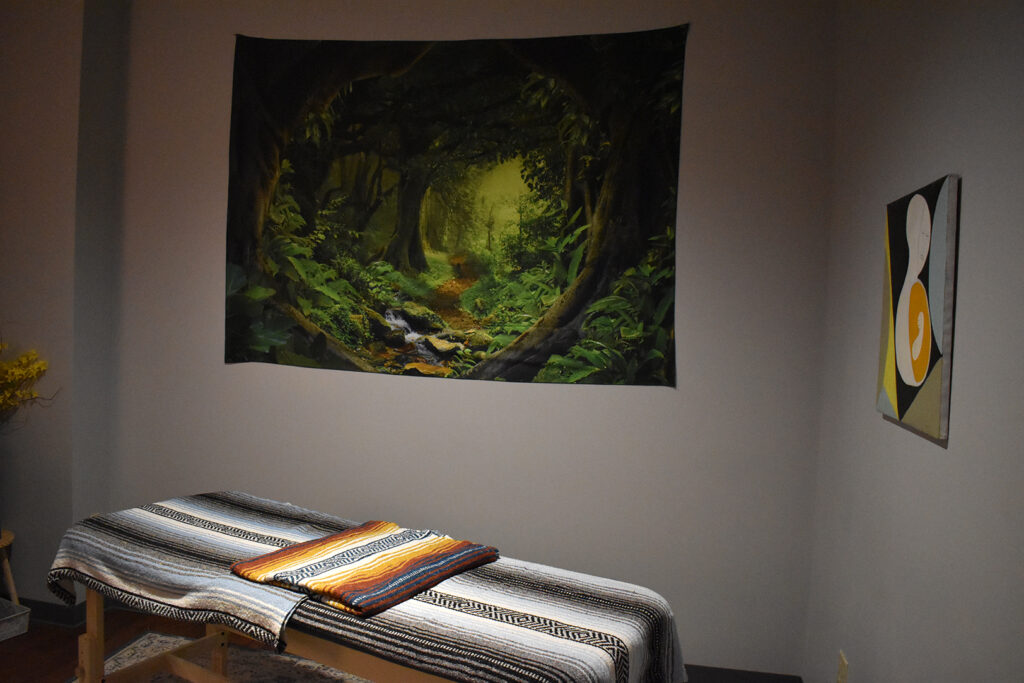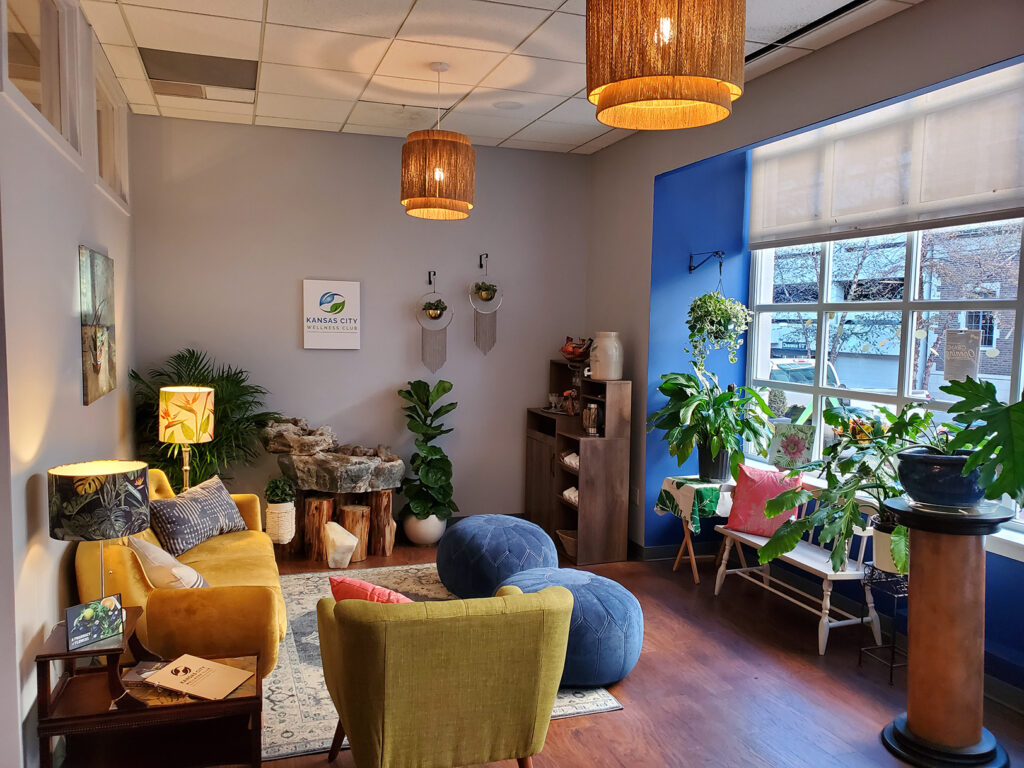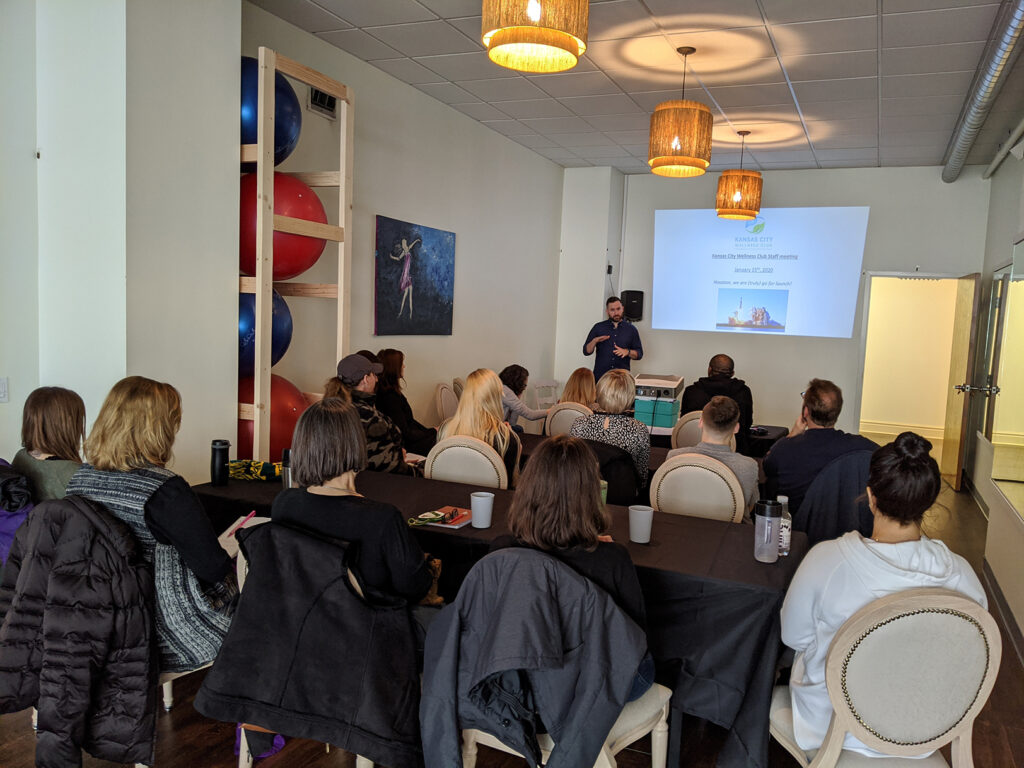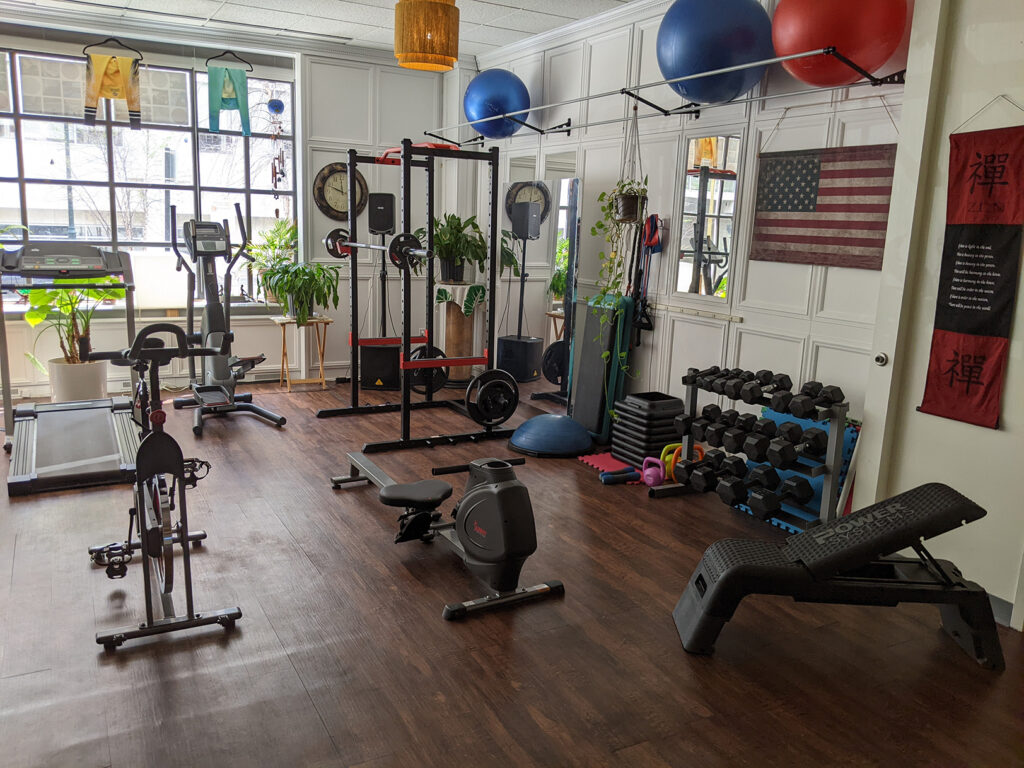The shift to focusing on wellness instead of illness should be fun, said Heath Wessling, a former wellness expert at Cerner-turned-entrepreneur, who noted sustained growth or change is unlikely if a person is unhappy with the process.
“We like to find ways to show you how it’s not a drag,” said Wessling, founder and owner of Kansas City Wellness Club. “It’s not a major disruption. It’s not a bummer to get healthy.”
His business — located downtown at the intersection of the financial and library districts — offers much more than just spa, salon, and fitness services — providing members with actionable ways to live sustainably while maintaining a budget, reducing stress and not wasting time, Wessling noted.
“We wanted to create a place that would save people from going to multiple places throughout the month for their wellness needs,” Wessling said. “We wanted to create a place that would strictly adhere and hold people to high standards of natural based products.”
“And, we wanted to provide a community of like-minded folks, just a place for people to talk about these modern-day issues, these modern-day stress triggers, and share information that could be very impactful, without being very complex,” he added.
Kansas City Wellness Club offers a number of skincare, hair care, body care, and energetic care products and services, Wessling said, noting that the club takes a holistic approach to each person’s overall health.
“Folks will get a session of energy healing done and realize how important the component of energetic health is to their overall health — how they need to pay attention to their emotions, the energies they absorb and give off, [and] how they deal with trauma in their lives,” he said.
The club also employs coaches who help educate members on their paths toward sustainable living, in addition to guiding them on coping strategies for handling stress brought on by technology and the pace of life.
The coaching program features seven pillars of wellness, Wessling said, each of which is judged by a coach in order to help members progress toward their holistic health goals.
“That focuses on ways to overcome modern-day stress triggers of feeling so busy, so overwhelmed, going through the motions every day, and not being able to prioritize what means the most to you,” he said.
Kansas City Wellness Club also uses virtual reality in its wellness programming, Wessling said, both to augment the impact of other treatments, and to demonstrate his belief that the wellness process can be fun.
Aligning values with lifestyle
Prior to opening Kansas City Wellness Club in January 2020, Wessling ran the wellness programs at Cerner for more than a decade.
In that role, Wessling continually found that many people wanted to align their lifestyle choices with their core values, but often didn’t know where or how to begin, he shared.
“It was overwhelming how wellness resonated with so many people who would say they wanted to get healthier at that point in their lives, and wanted to improve their health and start doing better things for their body, yet they just wouldn’t go and put those choices and actions into place,” Wessling said.
Kansas City Wellness Club encourages action by connecting members to resources at the club and within the community, so they can transition their buying power from global to local systems, Wessling said.
“That makes them more resilient to global shock events, as well as aligns their core values and intentions of wanting to support local — their local friends and family, their local neighbors, farmers and businesses,” he said. “Most people want to do that. It’s just that they don’t know how to do it in a quick and easy way that doesn’t drastically alter their lifestyles.”
To make that process easier, Kansas City Wellness Club is launching a pilot program called New Needs, which Wessling said will lean on local farmers and chefs to produce locally-sourced, nutritious meals that fit participants’ dietary needs, tastes, and budgets.
“That was the bigger vision,” Wessling said. “I’ve had to put the bigger vision on the back burner these last three years to navigate through the challenging COVID landscape, so I’m really thrilled to be talking about the bigger vision again.
New Needs would replace participants’ existing food budget rather than add onto it, according to Wessling, who noted that the program is meant to be personalized and flexible.
The 30 focus group participants can choose to have their meals pre-cooked, or the raw ingredients delivered to their homes, he added.
“This is that clear door, that option that exists, for people to say, ‘You’ve always wanted to support your local community more; you wanted to support the planet; you wanted to get healthier; and you’ve wanted to make your life easier, save yourself time, but you don’t know how to do all of those things,’” Wessling said. “Here is the door that you can walk through.”
Protection from a ‘fire’
Looking ahead, Wessling hopes to continue expanding the scope of the club’s vision, and its mission to promote holistic wellness and localized living.
“I feel that this was already in demand before COVID happened, but I think the last few years have made it even more of a timely business concept to offer to the community, for health services, time savings, connection to local economies, and focus on personal growth,” he said.
Since opening just weeks before the pandemic began, Kansas City Wellness Club has experienced roughly 20 percent month-over-month revenue growth, according to Wessling, who said the membership base also continues to grow.
He encouraged local residents to attend an open house, and urged entrepreneurs and business owners in the holistic health space to reach out for ways to partner with the club.
“We want to give you an opportunity and a platform to grow your own profile and your own passions and interests here in the context of this larger mission,” Wessling said.
Kansas City Wellness Club also hopes to build relationships with doctors who promote preventative and wellness care alongside primary care, Wessling said.
“Traditionally, health care focuses a lot on sick care actually — once you get sick, how you’re going to take care of yourself — but we want to shift people’s mindsets from illness into wellness,” he said. “That will shift their focus, as well as their budgets, into something that is going to ultimately produce better outcomes for them.”
By maintaining consistent healthy habits, Wessling believes individuals can focus more on root cause solutions rather than treatment after diagnosis, he said.
“Insurance for a body and a person’s health, in my mind, should be quite often looked at in the same light as insurance for a house, and the very rare risk of a fire,” Wessling said. “Everyone needs fire insurance on the house in case it does happen, but very rarely does that happen, because we do things that don’t allow fires to occur very often.”
“It should be the same way in the health care process,” he continued. “All of our advancements in information and knowledge about what it means to live a holistically healthy life can be used to greatly diminish the risk or the thought of a ‘fire’ happening to our body.”



